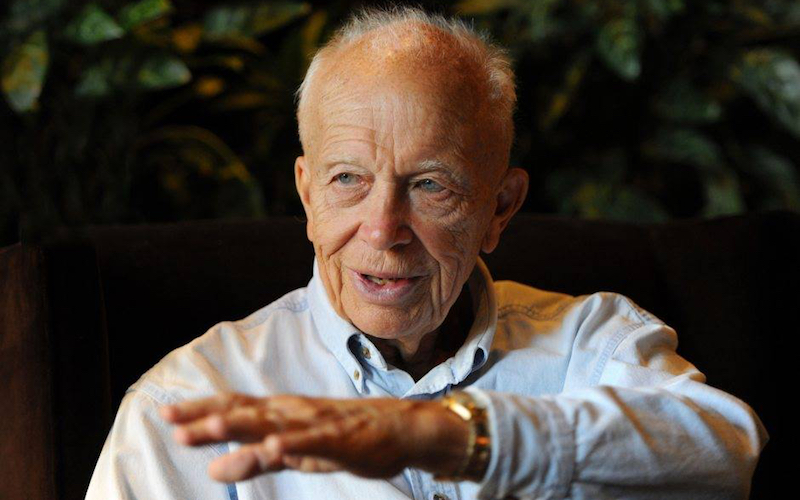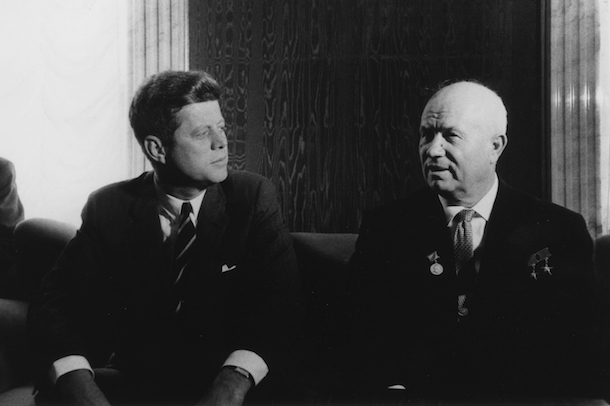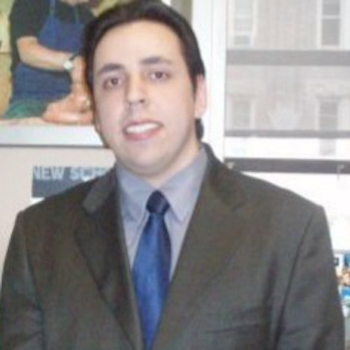
My Meeting with Sergei Khrushchev
As I drove through Rhode Island and got closer to Brown University, it made me think about how important this interview will be. Dr. Sergei Khrushchev, the renowned Cold War historian and son of late Soviet Premier Nikita Khrushchev, had granted me an interview for my doctoral dissertation on Russian foreign policy, which I was completing at the University of Hull in the United Kingdom. My family originated from the former Soviet Union and this meeting held a deep resonance within me. I thought about the lives of my grandparents and great-grandparents whose lives were indelibly shaped by the Kremlin. I was approaching his door when all these thoughts swirled in my mind. Dr. Khrushchev and his wife, Valentina, welcomed us into their home. Dr. Khrushchev resembled his father, except he was tall and lean with clear blue eyes.
Dr. Khrushchev spoke at great length about the various power struggles he had observed within the Kremlin, as well as the personal dynamics characterizing the current Russian leadership. Dr. Khrushchev confidently remarked that the bureaucratic debates and policy formulations are always controlled by the most dominant personalities. Dr. Khrushchev discussed how some Cold War myths still persist. These include those such as Nikita Khrushchev reacting to the Cuban Missile Crisis by sitting in a room isolated by himself, the tale of Khrushchev banging his shoe on a table during a meeting at the United Nations, and the fact that his father disliked John F. Kennedy. Dr. Khrushchev pithily noted: “You read history books that were written by dead people who were alive when these events occurred but were not there to actually witness them.”
He explained in detail that Nikita Khrushchev, far from being isolated, consulted a full range of diplomats, generals, and policy advisors during the crisis of 1962. Dr. Khrushchev cited Anastas Mikoyan as one of his father’s most important advisors during the nuclear confrontation. He went on to discuss the “shoe myth” and asserted that his father had lightly tapped his fist on the table to get the attention of the moderator during a meeting at the United Nations. He claimed the shoe was brought to his father after an employee cleaned it when Nikita Khrushchev asked someone to do this.

Lastly, Nikita Khrushchev did not possess antipathy toward John F. Kennedy. “My father liked him. He said a man in his 40’s is the perfect age to be president because a man in his 60’s only has time to worry about the hospital.” Dr. Khrushchev smiled and said that it was in the interests of those who were perpetuating the spirit of the Cold War to “vilify” the opposing side. Dr. Khrushchev and I spent some more time discussing contemporary foreign policy issues related to Russia and he proved himself as knowledgeable in current events as he was in historical detail.
As the interview ended and we took photos together, Dr. Khrushchev showed me photos and portraits from the past. Many of them were of Nikita Khrushchev, but one caught my attention. It was a photo of a young Sergei Khrushchev when he was a nuclear engineer being given a medal for producing nuclear missiles. The medal was given to him by a middle-aged Leonid Brezhnev during the years Nikita Khrushchev held the reins of power. It was ironic and symbolic of the many bureaucratic struggles within the Soviet Union’s leadership. Leonid Brezhnev was a primary force in ending Nikita Khrushchev’s tenure as leader of the Soviet Union, and the photo was a testament to the interwoven symphony of personal and political relations within the Kremlin. It was truly an honor to have had the opportunity to interview Dr. Sergei Khrushchev.

